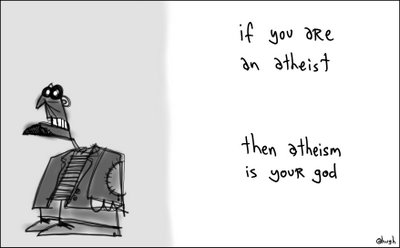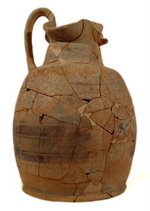19 October 2006
16 October 2006
Healing by Faith
 I have reason to go and pray for a dear friend, who recently survived one cancer scare, only to have another rear up its ugly head. Like many Christians I know, I believe that people can be healed through prayer - but I also find it a challenge to develop the faith to wholeheartedly trust in prayer. It is always useful in these situations to consider what Jesus did in these situations - because even he did not always find it possible to heal everyone.
I have reason to go and pray for a dear friend, who recently survived one cancer scare, only to have another rear up its ugly head. Like many Christians I know, I believe that people can be healed through prayer - but I also find it a challenge to develop the faith to wholeheartedly trust in prayer. It is always useful in these situations to consider what Jesus did in these situations - because even he did not always find it possible to heal everyone.
When it comes to the miracles of Jesus, I find Mark 6:1-13 to be one of the most amazing pieces of scripture. It is the only place where Jesus says he could not do any miracles - the reason being the lack of faith of his family, neighbours and hometown. Cynics point to this as evidence that his miracles relied upon slight of hand, and willing self-delusion by those 'healed'. But read this entire section:
Jesus left there and went to his hometown, accompanied by his disciples. When the Sabbath came, he began to teach in the synagogue, and many who heard him were amazed.Straight after being rejected himself, Jesus sends out the disciples to do what he could not do in his hometown. Talk about asking them to take a leap of faith!
“Where did this man get these things?” they asked. “What's this wisdom that has been given him, that he even does miracles! Isn't this the carpenter? Isn't this Mary's son and the brother of James, Joseph, Judas and Simon? Aren't his sisters here with us?” And they took offense at him.
Jesus said to them, “Only in his hometown, among his relatives and in his own house is a prophet without honor.” He could not do any miracles there, except lay his hands on a few sick people and heal them. And he was amazed at their lack of faith.
Then Jesus went around teaching from village to village. Calling the Twelve to him, he sent them out two by two and gave them authority over evil spirits.
These were his instructions: “Take nothing for the journey except a staff—no bread, no bag, no money in your belts. Wear sandals but not an extra tunic. Whenever you enter a house, stay there until you leave that town. And if any place will not welcome you or listen to you, shake the dust off your feet when you leave, as a testimony against them.”
They went out and preached that people should repent. They drove out many demons and anointed many sick people with oil and healed them.
Until we get to heaven, we can only speculate on Jesus' reasons for doing this. Perhaps he wanted to give people the chance to be healed by an unfamiliar person, like his disciples. Or perhaps this unique failure made it easier for the disciples to trust in God, knowing that it was the faith of those they preached to that would make the difference?
Later in Acts 14:8-10 we see Paul healing a man because of his faith:
In Lystra there sat a man crippled in his feet, who was lame from birth and had never walked. He listened to Paul as he was speaking. Paul looked directly at him, saw that he had faith to be healed and called out, “Stand up on your feet!” At that, the man jumped up and began to walk.So it is quite clear that faith is a key difference between receiving healing or not. Unfortunately, some people blame others of a lack of faith when they are not healed by prayer. At its most militant this can lead to people being accused of being 'backsliders' or 'unsaved'. Whilst this is possible, I think we should examine our reaction to others' lack of faith. Rather than condemn, we should encourage, rather than chastise, we should console.
For a good encouraging verse about this issue, we need look no further than James 5:13-18:
Is any one of you in trouble? He should pray. Is anyone happy? Let him sing songs of praise. Is any one of you sick? He should call the elders of the church to pray over him and anoint him with oil in the name of the Lord. And the prayer offered in faith will make the sick person well; the Lord will raise him up. If he has sinned, he will be forgiven. Therefore confess your sins to each other and pray for each other so that you may be healed. The prayer of a righteous man is powerful and effective.Clearly if Elijah could pray and have God create or break a drought, we can also pray and expect great things. In other words, it is the God we serve who does the miracles, not us, and we can have faith knowing that normal people before us have prayed and received miracles like the ones we need.
Elijah was a man just like us. He prayed earnestly that it would not rain, and it did not rain on the land for three and a half years. Again he prayed, and the heavens gave rain, and the earth produced its crops.
by
Falkayn
at
10/16/2006 10:57:00 pm
0
comments
![]()
Tags: miracles
10 October 2006
Flat Earth Myth
Whilst reading the comments on one of Andrew Bolt's posts and came across an interesting link to an article entitled Myth of the Flat Earth by historian Jeffrey Russell.
Russell points out that claims that the Church Fathers believed or promoted the idea of a flat earth, particularly in opposition to Christopher Columbus, are absurd. He claims that most Christians since the 3rd century believed in a spherical Earth. The flat earth myth began in the 1830s in Paris. So why did this myth catch on?
“The answer is that the falsehood about the spherical earth became a colorful and unforgettable part of a larger falsehood: the falsehood of the eternal war between science (good) and religion (bad) throughout Western history. This vast web of falsehood was invented and propagated by the influential historian John Draper (1811-1882) and many prestigious followers, such as Andrew Dickson White (1832-1918), the president of Cornell University, who made sure that the false account was perpetrated in texts, encyclopedias, and even allegedly serious scholarship, down to the present day. A lively current version of the lie can be found in Daniel Boorstin's The Discoverers, found in any bookshop or library.”Given Pope Benedict's recent speech about the place for theology in the sciences, the false view that science and religion must be opposed is a common one. For my own part, when I found my faith in Christ, I did not lose my interest in science - but I came to see that science (as I understood it) did not trump faith, but supports and is informed by it.
[UPDATE: Interestingly Daniel Tammet comments on how a recent interview with Richard Dawkins showed the same sort of erroneous either/or thinking about science and religion.]
by
Falkayn
at
10/10/2006 09:21:00 pm
0
comments
![]()




